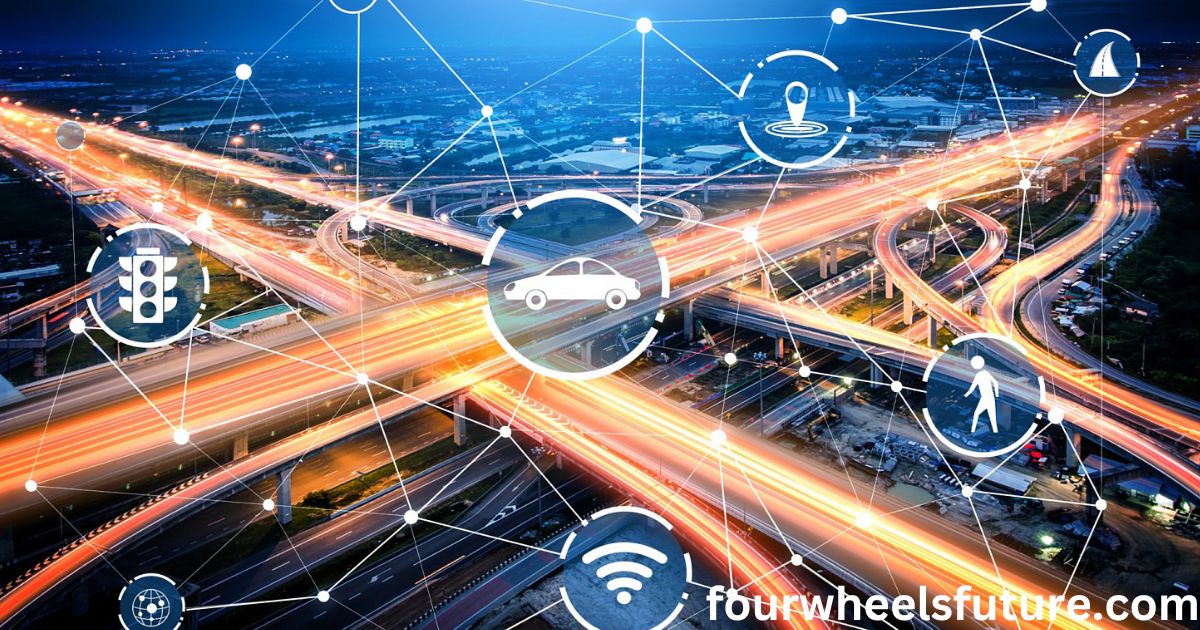Table of Contents
ToggleTransportation is undergoing a digital revolution, with smart technology transforming the way people and goods move around the world. From self-driving cars to intelligent traffic management systems, smart technology in transportation is all about leveraging advanced tools and data to create safer, more efficient, and sustainable mobility solutions.
Defining Smart Technology in Transportation
Smart technology refers to the integration of cutting-edge tools such as artificial intelligence (AI), Internet of Things (IoT), big data analytics, and automation to improve transportation systems. It encompasses a range of innovations designed to optimize traffic flow, enhance safety, reduce environmental impact, and improve the user experience.
Key Applications of Smart Technology in Transportation
1. Intelligent Traffic Management Systems
Smart technology enables cities to monitor and manage traffic in real time. Through the use of IoT sensors, cameras, and AI-powered algorithms, traffic systems can detect congestion, accidents, or bottlenecks and adjust traffic signals or recommend alternate routes to drivers. This reduces travel time, minimizes fuel consumption, and enhances urban mobility.
2. Autonomous Vehicles (AVs)
Self-driving cars and trucks are among the most revolutionary applications of smart technology in transportation. Using AI, cameras, lidar, and sensors, AVs can navigate roads, detect obstacles, and make decisions without human intervention. Autonomous vehicles promise to reduce accidents caused by human error and improve logistics efficiency in industries like shipping and delivery.
3. Connected Vehicles
Smart technology enables vehicles to communicate with one another and with infrastructure in real time, a concept known as Vehicle-to-Everything (V2X) communication. For example, cars can receive alerts about nearby hazards, weather conditions, or upcoming traffic lights, improving safety and reducing delays.
4. Smart Public Transit Systems
Public transportation is becoming more user-friendly with the integration of smart technology. Real-time tracking apps allow passengers to monitor bus or train arrivals, while smart payment systems like contactless cards or mobile apps simplify fare collection. Additionally, AI algorithms help transit agencies optimize routes and schedules based on passenger demand.
5. Electric and Sustainable Transportation
The rise of electric vehicles (EVs) is supported by smart charging infrastructure. IoT-enabled charging stations can monitor energy demand and optimize charging schedules to reduce strain on the power grid. Furthermore, smart technology is helping cities design sustainable transportation systems, such as bike-sharing platforms and electric buses.
6. Drone Technology
Drones are becoming an essential part of smart transportation, especially in logistics and delivery services. Equipped with GPS and advanced sensors, drones can deliver goods quickly and efficiently in urban areas, bypassing traffic and reducing delivery times.
Benefits of Smart Technology in Transportation
- Increased Safety: Automated systems and real-time data reduce the likelihood of accidents and enhance emergency response.
- Improved Efficiency: Optimized traffic flow and connected vehicles minimize travel time and fuel consumption.
- Environmental Sustainability: Smart transportation promotes the use of eco-friendly options, such as EVs and public transit, reducing carbon emissions.
- Enhanced User Experience: From real-time updates to seamless payment systems, smart technology makes transportation more convenient and accessible.
- Cost Savings: Efficient systems reduce operational costs for governments and businesses while saving time and money for travelers.
Challenges and Future Outlook
Despite its promise, smart technology in transportation faces challenges such as data privacy concerns, high implementation costs, and the need for robust infrastructure. However, as technology continues to evolve, these obstacles are likely to be addressed through innovation and collaboration.
The future of smart transportation lies in greater connectivity and automation. Emerging trends like smart cities, hyperloop systems, and AI-powered logistics will further revolutionize the way we move. Governments and industries must work together to ensure that these advancements are accessible and beneficial for all.
Final Thoughts
Smart technology in transportation represents a significant leap forward, merging innovation with mobility to create systems that are safer, more efficient, and sustainable.
Whether it’s autonomous vehicles, intelligent traffic management, or connected public transit, these advancements are paving the way for a smarter, greener, and more connected future.

